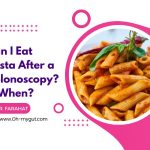Can You Eat Rice After Colonoscopy? & What Type?
Our content is not intended nor recommended as a substitute for medical advice by your doctor. Use for informational purposes only.
The Short Answer
Yes, you can eat rice after a colonoscopy, and in fact, it’s often recommended. However, it’s best to start with white rice, which is easier on your digestive system. Avoid irritant additives such as high fat and spices.
Bullet Summary
- Rice can be eaten after a colonoscopy, usually white rice.
- Factors influencing when you can eat rice include any pre-existing conditions, post-colonoscopy side effects, the procedures done during the colonoscopy, and the type of anesthesia.
- White rice is usually preferred over brown rice due to its lower fiber content.
- Avoid spicy, high-fiber, or fatty rice additives.
- After a colonoscopy, other foods like low-fiber fruits, cooked vegetables, and lean proteins can also be introduced.
When to Eat Rice After a Colonoscopy?
Typical Time to Introduce Rice After a Colonoscopy
If you’re feeling hungry and not experiencing any adverse effects, such as nausea or vomiting, you can start eating a few hours after the procedure. However, it’s wise, to begin with small quantities and monitor your body’s response.
Factors to Consider While Introducing Rice
Several factors should influence the timing and quantity of rice you consume post-colonoscopy (reference):
- Pre-existing gut diseases or conditions: Conditions like Irritable Bowel Syndrome (IBS) or Inflammatory Bowel Disease (IBD) may influence your dietary choices post-procedure.
- Post-colonoscopy gastrointestinal side effects: Symptoms like bloating, diarrhea, nausea, and vomiting may delay the introduction of solid foods, including rice.
- Procedures performed during the colonoscopy: If any additional procedures, like polyp removal or biopsy, were performed, you might need to wait longer before eating solid food.
- The type of anesthesia: Depending on the type of sedation used during the procedure, your ability to eat may be affected.
- Presence of major post-colonoscopy complications: In the rare event of complications like bleeding or perforation, your doctor will provide specific dietary advice.
White or Brown Rice Following a Colonoscopy: Which One Win?
White rice usually takes the crown in the post-colonoscopy phase. Its win lies in its lower fiber content than brown rice, which translates into a gentler experience for your recovering digestive system. While brown rice often wears the health halo under normal circumstances, its high fiber content can lead to discomfort following a colonoscopy.
Ingredients to Avoid When Preparing Rice After a Colonoscopy (And the Reasons)
When you’re ready to prepare your post-colonoscopy rice dish, you need to side-step certain additives:
- Sauces or dressings high in fat: These can potentially lead to an upset stomach or diarrhea.
- Hot spices: Spices can irritate your recovering digestive system and cause discomfort.
- Vegetables or beans high in fiber: These can pose a challenge for your digestive system and may cause discomfort or gas.
- Alcoholic beverages: These can potentially lead to dehydration and impede your recovery.
Instead, stick to simple and mild seasonings, like a pinch of salt or a light drizzle of olive oil, to avoid upsetting your sensitive digestive tract.
Other Foods to Try After Colonoscopy
Alongside rice, you may want to introduce other easily digestible foods; here is a table detailing common foods to try after a colonoscopy.
| Food Group | Examples | Details |
|---|---|---|
| Starches | White rice, white bread, potatoes, crackers | These foods are low in fiber and easier on the digestive system. They provide the body with quick energy. |
| Lean Proteins | Chicken, fish, tofu, eggs | Proteins are crucial for tissue repair and can be easily digested. However, it’s best to avoid fried or spicy preparations. |
| Cooked Vegetables | Carrots, peas, pumpkin, potato | Cooked vegetables are generally easier to digest than raw ones. They also provide necessary vitamins and minerals. |
| Low-Fiber Fruits | Bananas, melons, peaches (without skin) | These fruits are gentle on the digestive system and provide hydration and essential nutrients. |
| Dairy | Yogurt, milk, cheese | Dairy products are an excellent source of calcium and protein. Choose low-fat options to avoid upsetting your stomach. Avoid if you’re lactose intolerant. |
| Hydrating Beverages | Water, herbal tea, clear broths, electrolyte-enhanced drinks | Staying hydrated is crucial after a colonoscopy. These drinks can help replenish lost fluids without irritating the digestive system. |
It’s important to note that each person’s body is different, and what works for one may not work for another.
Listen to your body; if certain foods cause discomfort, try something different. Always follow the guidance provided by your healthcare professional.
FAQs about rice & colonoscopy:
Can I eat fried rice after a colonoscopy?
While fried rice might sound appealing after your colonoscopy, it’s typically not the best choice. Foods that are fried can be challenging to digest and may cause discomfort or an upset stomach. They also often have a high content of fats and spices, which can potentially irritate the digestive system.
It’s usually recommended to choose plainly cooked white rice during your recovery phase instead.
Can I eat rice pudding after a colonoscopy?
Certainly, rice pudding is usually an acceptable choice following a colonoscopy, especially if it’s made from white rice and isn’t overly sweet or loaded with rich ingredients. The comforting, creamy consistency of rice pudding can be easy on the digestive system.
However, it’s smart to begin with a small amount and monitor how your body responds before indulging further.
Can I eat rice soup after my colonoscopy?
Indeed, rice soup is typically well-tolerated post-colonoscopy. It’s gentle on the stomach and easily digestible. Soups that feature low-fat broths, white rice, and easily digestible vegetables or lean proteins are usually a safe bet.
Always avoid ingredients that are spicy or high in fat, as these can potentially cause discomfort.
When to stop eating rice after colonoscopy.
There’s usually no defined timeline for when you should stop eating rice after a colonoscopy as long as your body continues to handle it well without discomfort.
However, if you start experiencing symptoms like bloating, gas, or an upset stomach after eating rice, it might be wise to limit its consumption or try other food options.
As always, it’s recommended to reach out to your healthcare provider if you experience any discomfort or have concerns regarding your diet post-procedure. Remember, everyone’s body is different, so what suits one person might not suit another. Listen to your body’s cues and adhere to the advice given by your healthcare professional.
- Evidence-based
- Written by a doctor.






